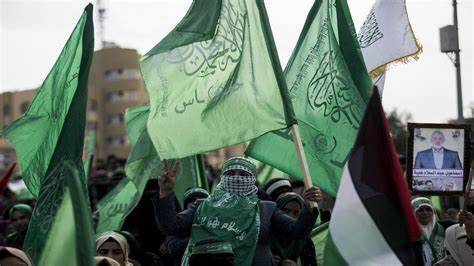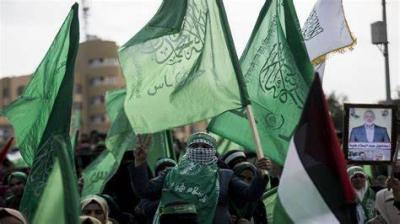Following the assassination of Ismail Haniya, the head of the political bureau of the Islamic Resistance Movement "Hamas," early this Wednesday in Tehran, after his participation in the inauguration of Iranian President Masoud Bezhkishan, many are questioning who will succeed Haniya as the head of the political bureau of the movement. On January 3, the Israeli military assassinated the Deputy Head of Hamas's Political Bureau, Saleh al-Arouri, in an airstrike in southern Lebanon. This means that the positions of both the head of the political bureau and his deputy in the movement are now vacant.
**How Are Internal Elections Conducted?**
Hamas conducts its internal elections every four years under conditions of secrecy due to considerations related to security persecution by Israel. According to Palestinian political researcher and professor of political science Adnan Abu Amer, "Hamas distinguishes itself from other Palestinian organizations by holding internal elections every four years, the results of which affect the decision-making process within the movement and reflect on its participation in general Palestinian elections, as well as its relations with other factions, in addition to affecting Hamas's regional and international relations."
Abu Amer added: "Hamas's internal elections include several stages, starting with the selection of administrative bodies for local areas, up to the election of the General Shura Council, culminating in the election of the President and members of the political bureau. These elections are held without campaign advertising, relying entirely on secrecy and covering all administrative and advisory levels."
Regarding the nomination mechanism, Abu Amer said: "Hamas leaders do not initiate their candidacies for leadership positions, but rather, members of the elected Shura Council nominate whom they see as suitable for the position of head of the political bureau on the same day of the election. Those who gain a majority of their votes become the leader of the movement, and thus the decision to elect its leader is returned to the advisory institution, not to any particular party within the movement, and is not subject to the will of any entity within it."
It is worth mentioning that the internal elections of Hamas in 2021 were conducted using a mechanism that included members who have been part of the organization for 15 years among those eligible to be elected, whereas previous elections were limited to those holding the rank of sergeant, which is the highest organizational rank in Hamas. Additionally, its internal regulations prohibit self-nomination for positions and rely on spontaneous selection by voters.
Abu Amer continued, stating: "While local areas in Hamas choose the General Shura Council, the latter elects members of the political bureau, which is the highest leadership tier in Hamas. Hamas's internal system divides its presence into four general areas: the Gaza Strip, the West Bank, abroad, and Israeli prisons. The head of its political bureau is allowed to remain in office for only two consecutive terms, and it is customary for Hamas to hold internal elections every four years to choose its top political leaders, the last of which took place in May 2017, when Haniya won the presidency of its political bureau, succeeding Khaled Mashal."
Abu Amer clarified, commenting on the last internal elections held: "Contrary to the usual practice, Hamas this time published photographs of its internal elections, perhaps to demonstrate its democratic behavior to global public opinion on one hand, and on the other hand, to indicate that it has begun to adopt transparency in its political and organizational practices."




